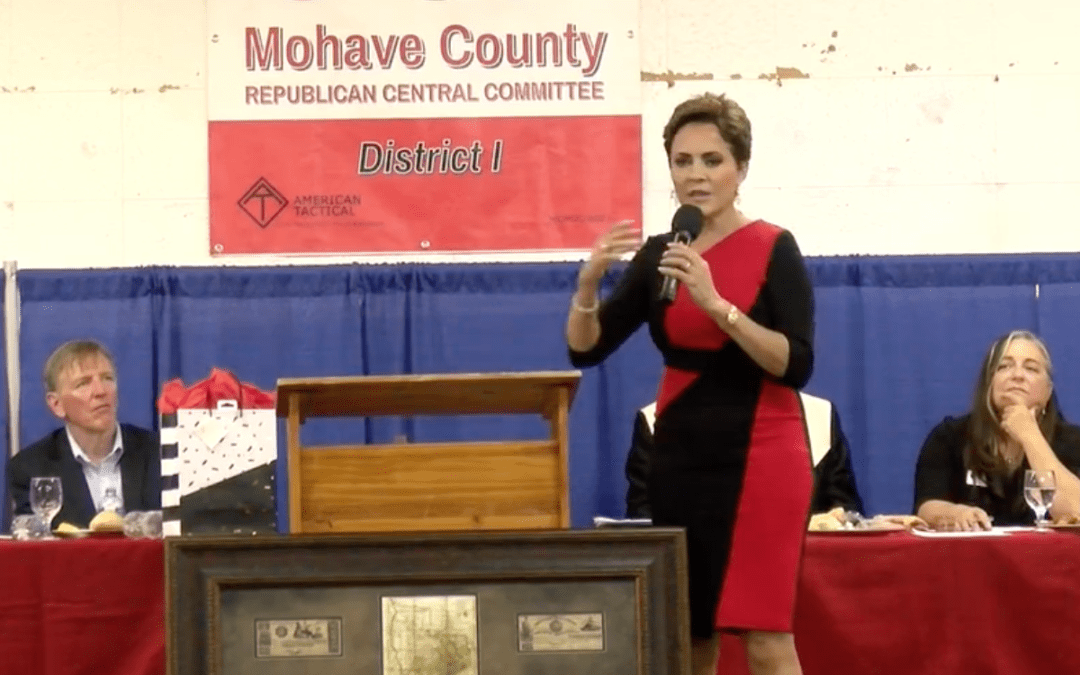
Courier Newsroom Illustration/Desirée Tapia
“As someone who’s from Seattle, I think it’s awesome to see that Starbucks and Amazon are finally having to face the music.”
Labor unions are seeing a resurgence in the US.
Union petitions submitted to the National Labor Relations Board increased 57% from the first half of fiscal year 2022 over the same period in 2021.
More than 300 Starbucks locations nationwide have started the process of unionizing. So far, five locations in Arizona have voted for a union, while a few others have filed for elections but not yet voted.
RELATED: NLRB Dismisses Starbucks Charge Against Phoenix Union Organizers
Scott Heric, who co-founded Unionly, a payments processing form for unions, has watched the country’s interest in unionizing grow. We spoke with him about the intersection of technology and unions, as well as what he has learned in his time working in this space.
Watch the full conversation here, or check out some highlights below.
Note: This interview has been edited for length and clarity.
The Copper Courier:
You have a background in tech. Can you talk a little bit about how you got involved in the union space and working with Unionly?
Scott Heric:
Six years ago, I was introduced by a family friend to the owner of a company called Unions America. They’re one of the largest website providers in the union space. At the time I oversaw one of the largest fundraising platforms in the collegiate space.
[The family friend] said, “Hey, we really need this kind of technology with our websites, with our clients. We just need some help to kind of bring modern technology, especially in the payment space, to this industry.” And I started looking into it.
RELATED: How Passing the PRO Act Would Change Arizona Starbucks’ Union Efforts
And the more I looked into it’s more just like, hey, there’s not a lot of people really helping out this whole group that kind of makes the country run. It was outdated, which makes sense because they’re doing their jobs, they’re not concerned with keeping up to date with new technology, and the companies that were in the space just really didn’t seem to be helping them much, which I think is still the case.
I worked on the concept for about three years, tried pitching it to the printer company I was at. They didn’t like the idea. [On] Jan. 1, our portion of the company was acquired, but another company pitched it to that company, they didn’t like the idea either.
March 2020, the world ends, right? Everything shuts down, everyone gets laid off. So I’ve been working on it for about four years at that point. I went to the owner of Unions America and said, “Hey, if we do this on our own, do you still want us to do it?” He said, “No, we’ve been counting on it, actually.” So then I got in touch with my buddy who helped build the prior platform we were at, and he said I had about a month to get going. And we got to work, and here we are a few years later.
And that’s one of the cool things that I wish I could say—we went into it knowing we’d be able to help increase membership with this kind of technology—but that would not be genuine. We can basically digitize the application process and the dues process, which for a few of our clients we’ve worked with has had a wildly positive impact because people can find it online.
I know it’s a crazy concept, but taking something that used to take weeks via mail and being able to do online [has increased membership for some clients.] And as someone who’s from Seattle, I think it’s awesome to see that Starbucks and Amazon are finally having to face the music, so I’m happy to help however I can.
CC:
Yeah, and you kind of touched on this, but how have you viewed the growing labor movement and seen it reflected in your work with Unionly?
SH:
I always thought unions band together, take care of each other for better working conditions, right? But when I brought it to some people, they’d say, “Oh, that’s very political, Scott.” And I’d say, “Well, I guess it depends what your stance is.”
To me, the heart of it is that you come together to organize, to take care of each other. I’ve worked in the tech industry my whole career where unions have just been absent from that. And I think it kind of hit a tipping point with everyone being at home like, “Well, wait a minute, maybe we’re all getting screwed.”
I think it’s also super cool to hear that the Starbucks [movement], especially, is being driven by some of the younger generations, and that’s the force of organizing that would be pretty impossible to stop. I think that’s starting to have an impact across organizations, trying not to slight older generations here. The original guard is graciously helping usher in a newer era of leadership, it seems like across the board, which is cool to see.
CC:
How does collecting payments work with Unionly?
SH:
Personally, I think payroll deduction [for union dues] should never be done. I know that’s kind of a rogue thing to say. I know it was kind of with shifting technologies, it’s just another thing that changes, right? It’s what was done, it’s convenient, it’s easy.
But we’ve worked with scenarios where payroll deduction is cut, and then that basically defunds the union immediately. So then they’re scrambling like, “Oh, what do we do?” And…we get the system set up and basically help them stay solvent.
And then a few of the times they’re like, “All right, this is great. We got our new contract. We’re not going to need this anymore because we’re doing payroll deduction again.” And I’m like, “Well, why would you do that? Why would you give them back their main weapon?”
I think especially any new union that’s forming, make sure that payroll deduction is not part of the conversation of dues because that’s the biggest weapon where you’re saying, “All right, we’re going to form, but then you’re going to take this out because it’s convenient.”
So to me, it just sets you up to be in trouble in the future, versus, “Hey, we just have our financing taken care of, we’re good.” It’s very possible to remove that item from the whole conversation. So knowing that, why not do it?
CC:
Unionly also offers the ability for unions to organize events and fundraisers. How have you seen those types of things work with the culture of unions?
SH:
Who doesn’t love a good party now we can again, especially after a few years of not being able to socialize? I’m actually going to one of our clients’ fundraising cornhole tournament events for their burn foundation. Supporting the community, supporting a cause, getting everyone together to kind of agree, “Hey, we’re all here together,” that’s a community within a community that just kind of helps keep it all together.
On the fraud side, that was a big part of why we got into it. The amount of fraud that happens through GoFundMe is just disturbing. And I don’t knock them for that. I mean, they have this platform set up, does a lot of great, but there’s people that are basically watching the news ticker and then a fundraiser pops up and they see it and then it builds momentum. So everyone’s donating to this fundraiser, and it’s not tied [to the actual cause].
But by doing it through [Unionly], it’s known for a fact and they can say, “Hey, this is us.” I’ve had several conversations with families or representatives of families, of police officers or firefighters to set up their fundraisers the day or the day after they passed away which is always a pretty real conversation. But hey, it’s what you got to do. And I mean, that’s when we do all that for free, right? It’s not when I want to monetize.
But as far as the whole community and seeing people come together to me, it’s like, OK, you have your application, your dues, but what about in between, right? And maybe people don’t care, maybe they don’t want to engage. But maybe they do, and you’re not giving them opportunities. With technology it’s easy enough to just create even little mini events of coming together, making it become more engaging.
CC:
What is something that you’ve learned about unions since starting Unionly?
SH:
I’d say what has made them strong is what has kept technology out. Where you’re very trusting and very insular, which is good, but because it’s so insular, it’s kind of kept business out.
I’ve also learned that they’re one of the more efficient units I’ve ever seen. All the conversations I’ve had in business, it’s very passive aggressive, or not direct. [But with unions,] it’s like, “Hey, this is what we need to do.” And once we have that conversation, it’s like, “All right, let’s go.”
There’s a lot of camaraderie in that which I, coming from a big family, identify with a lot as a human. You want to look out for each other, whether that’s your close friend group or any group you’re part of.
Looking for the latest Arizona news? Sign up for our FREE daily newsletter.
Politics

He said what? 10 things to know about RFK Jr.
The Kennedy family has long been considered “Democratic royalty.” But Robert F. Kennedy, Jr.—son of Robert F. Kennedy, who was assassinated while...

Kari Lake calls on Arizona county sheriffs to enforce 1864 abortion ban
Republican candidate for US Senate Kari Lake on Saturday seemed to solidify her support for Arizona’s total abortion ban and called on county...
Local News

Opinion: Don’t think Arizona abortion bans are harming women? Think again.
This is part TWO in a series on the increase in violence against women since the US Supreme Court overturned Roe v. Wade, and the future of abortion...

6 terrifying things that could happen if the Comstock Act is used to target abortion
Does 1873 sound like a really, really long time ago? Well, that’s because it is—but if Republicans and far-right anti-abortion activists have their...





